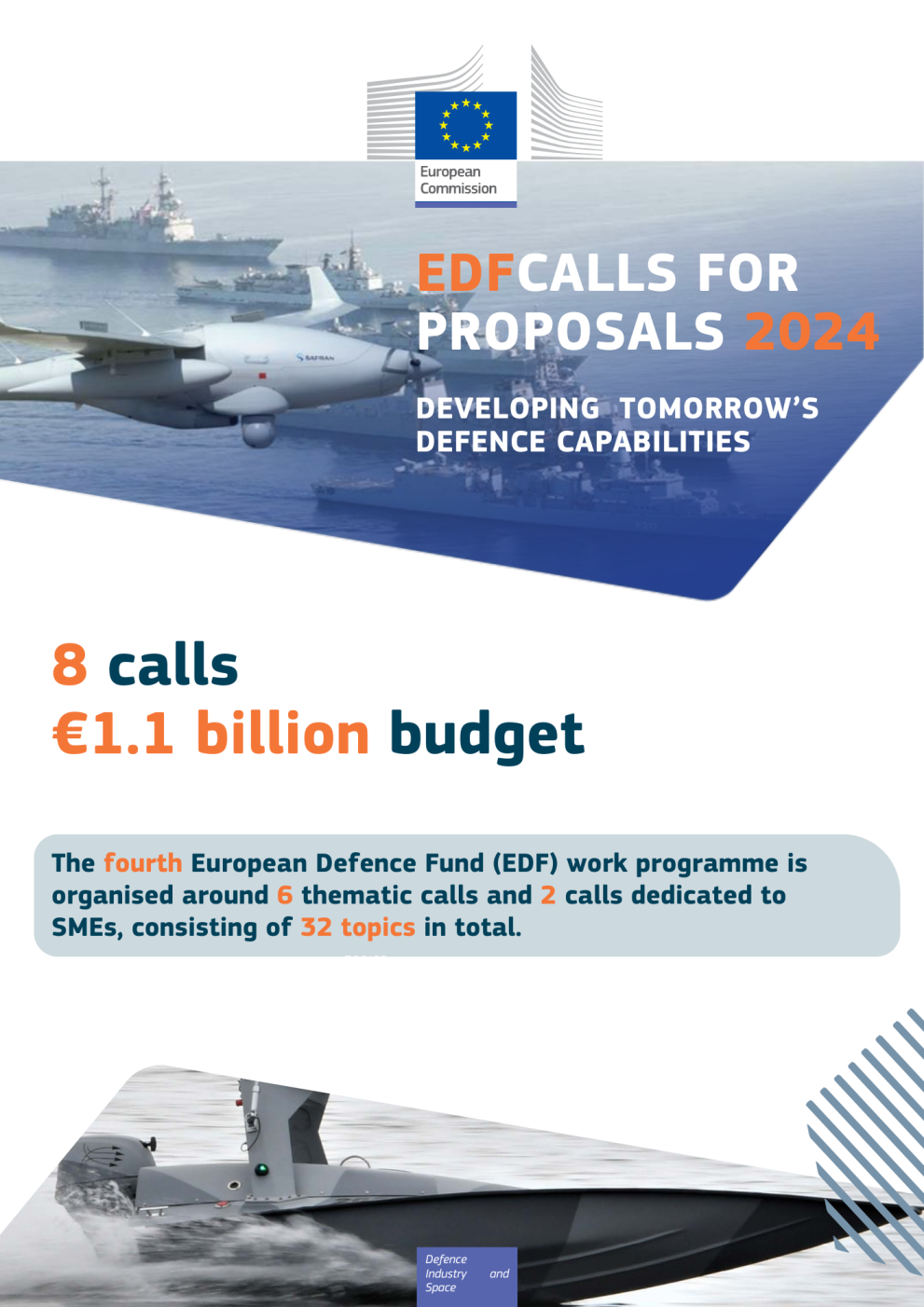 \
&
Contact us
\
&
Contact us
 \
&
Contact us
\
&
Contact us
Published on | 1 year ago
ProgrammesThere are 4 attachments connected to this article.
Attachments are only accessible for people with an account on the NCP Flanders website.

The 2024 EDF Work Programme addresses 32 call topics in total, structured along 6 thematic calls for proposals, 2 non-thematic calls for proposals and 2 actions in support of the Alliance for Defence Medical Countermeasures.
It will support projects in critical defence domains, such as countering hypersonic missiles, developing a broad range of unmanned vehicles in the air and on the ground, as well as secure space communication. It also prepares the ground for next generation defence systems, such as helicopters and mid-size cargo aircraft.
Furthermore, the work programme provides a wide range of support measures to promote defence innovation and inclusiveness through the EU Defence Innovation Scheme (EUDIS) with a total funding of €225 million. This includes Technological Challenges on space and on sensors, a spin-in call under the ‘Materials and components’ category of action and a call with sub-call (cascade funding) for start-ups and SMEs under ‘Simulation and training’, as well as open, non-thematic calls for SMEs.
EUDIS will continue to fund the organisation of annual defence hackathons, as well as business coaching for SME beneficiaries and the Defence Equity Facility under InvestEU. The novelty for 2024 is the foreseen funding for a EUDIS Business Accelerator and Matchmaking with investors (call for tender expected to be published in spring 2024).
We offer news and event updates, covering all domains and topics of Horizon Europe, Digital Europe & EDF (and occasionally, for ongoing projects, Horizon 2020).
Stay informed about what matters to you.
By signing up, you can opt in for e-mail notifications and get access to
a personalised dashboard that groups all news updates and event announcements in your domain(s).
Only for stakeholders located in Flanders
The Department of Economy, Science and Innovation of the Flemish government coordinates the Horizon 2020 Coordination and Support Action SAPHIRe, which started on 1 December 2018. The aim of the project is to secure the adoption of personalised medicine in all European regions, including sparsely populated and remote regions and regions with different innovation capacities.
The activities of SAPHIRe are complementary to the smart specialisation partnership on personalised medicine – S3P4PM, which is also coordinated by the Department of Economy, Science and Innovation.